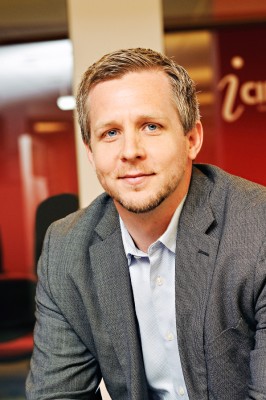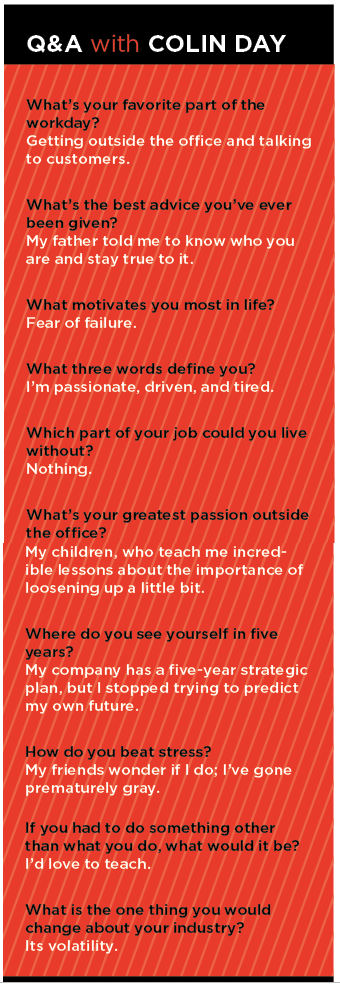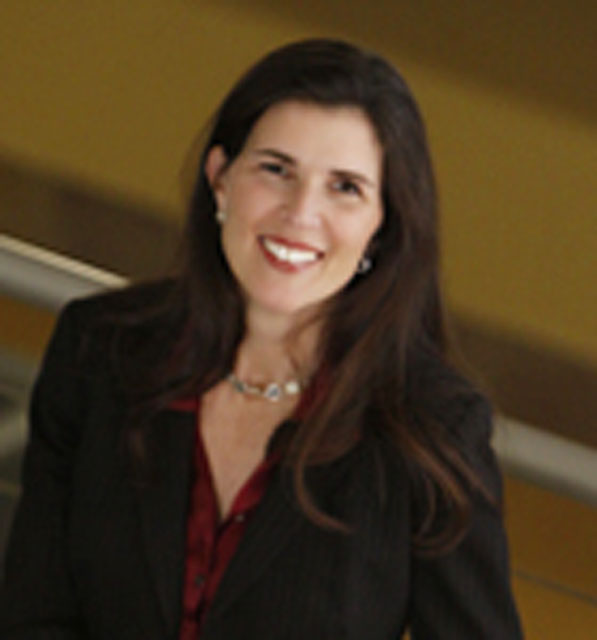
There are moments in every entrepreneur’s life when he faces obstacles so daunting he’s tempted to throw in the towel. For Colin Day, that day came in 2000, a year after he founded New Jersey software company iCIMS, at the age of 23.
“Our funding was cut off, and we had to become self-sustaining immediately,” recalls Day, whose software helped companies recruit talent. “We cut two-thirds of our staff the next day, and I began writing a business plan detailing how we’d close shop.”
Ninety-nine out of 100 entrepreneurs would have proceeded with that course of action, but Day found himself an outlier for one reason: his immense fear of failure. “I found myself saying, ‘Failure just isn’t an option,’ and shredding the business plan,” he recalls.
Part of that decision may have been the folly of youth. Day was just a few years out of college, armed with only a bachelor’s degree in psychology from Cornell University and two years of experience working as a recruiter for Comrise Technology, a recruiting firm in the technology industry. Day came from a family of entrepreneurs, however, and wasn’t going to let inexperience prevent him from starting his own business.
The timing, it turns out, was fortuitous: Comrise had built internal recruiting software that Day thought had potential, so he convinced the company’s executives to let him spin off a company that would take the software to market. “They not only said yes, but offered to fund it,” Day says. It was one of those rare moments in Day’s life in which “all the stars aligned.”
Less than a year later, however, Comrise cut funding, and with good reason. “We offered our solution via a software-as-a-service model, which had just been invented,” Day says. “It was like the Wild West. Companies were going out of business every day, creating an aura of instability that made it difficult for a start-up to gain customers. We weren’t just selling great software; we were selling the stability of the company.”

Day managed to succeed despite the fact that he was going through, in his words, “the business school of hard knocks.” First, he had a good product. “I’m not a coder, but I knew what recruiters wanted,” he recalls. “We’re often told we’ve built an easy-to-understand system, and I think a lot of that is the result of bringing together the little experience I had quite effectively.”
Additionally, Day read avidly, and credits several books—including Good to Great, Built to Last, The Long Tail, Blue Ocean Strategy, and Delivering Happiness—with being instrumental to the kind of company he created. Today, he keeps them shelved in the company’s library. “The Jim Collins books, in particular, taught us to be great at one thing, which led us to focus only on the acquisition segment of the
recruiting market,” Day says.
Day also credits his board of directors with giving some of the best advice he has ever received. “Early in our history, there were hundreds of vendors in the market, with no differentiation,” Day says. “Everyone was fighting on price, and no one was profitable as a result. Our board told us to do two things: change our value proposition to focus on being the best in customer service, and triple our price. We thought it was suicide, but we did it, and it was the best decision we ever made. We rose above the fray.”
Today, iCIMS offers three products: Connect, which uses a CRM system to turn passive candidates into active applicants; Recruit, which posts job openings to internal and external websites and accepts résumés; and Onboard, which facilitates the administrative work necessary after an applicant has been hired. The company—which posted revenue of $25.6 million in 2010—has been tremendously successful, growing organically at a 43 percent compound-annual growth rate since 2003. It has made the Inc. 5000 list of fastest growing companies for six consecutive years, and it’s ready for the future: early in 2012, the company announced that Susquehanna Growth Equity had taken a minority stake in the firm, giving it $35 million to spend on expansion.
With those numbers and a current employee base of 210—which is expected to grow by 25 percent in 2012—you’d think Day could take a break. But the self-described perfectionist isn’t taking it easy, despite now having two young children, and can often be found working from his treadmill desk, an attempt to beat stress without slowing down. He is, however, changing his perspective. “By hiring so many great people, I hired myself out of my old day job, and for a while I struggled with that,” he says. “But I now understand that my role is to chart out the future, and that is a continuous education.”

